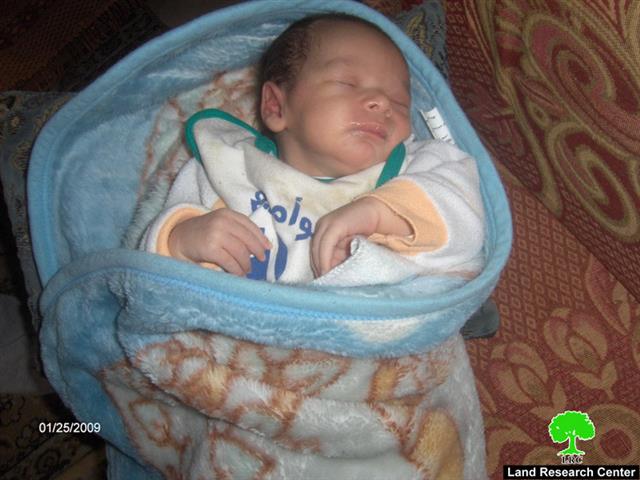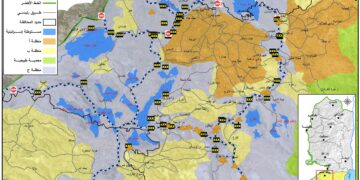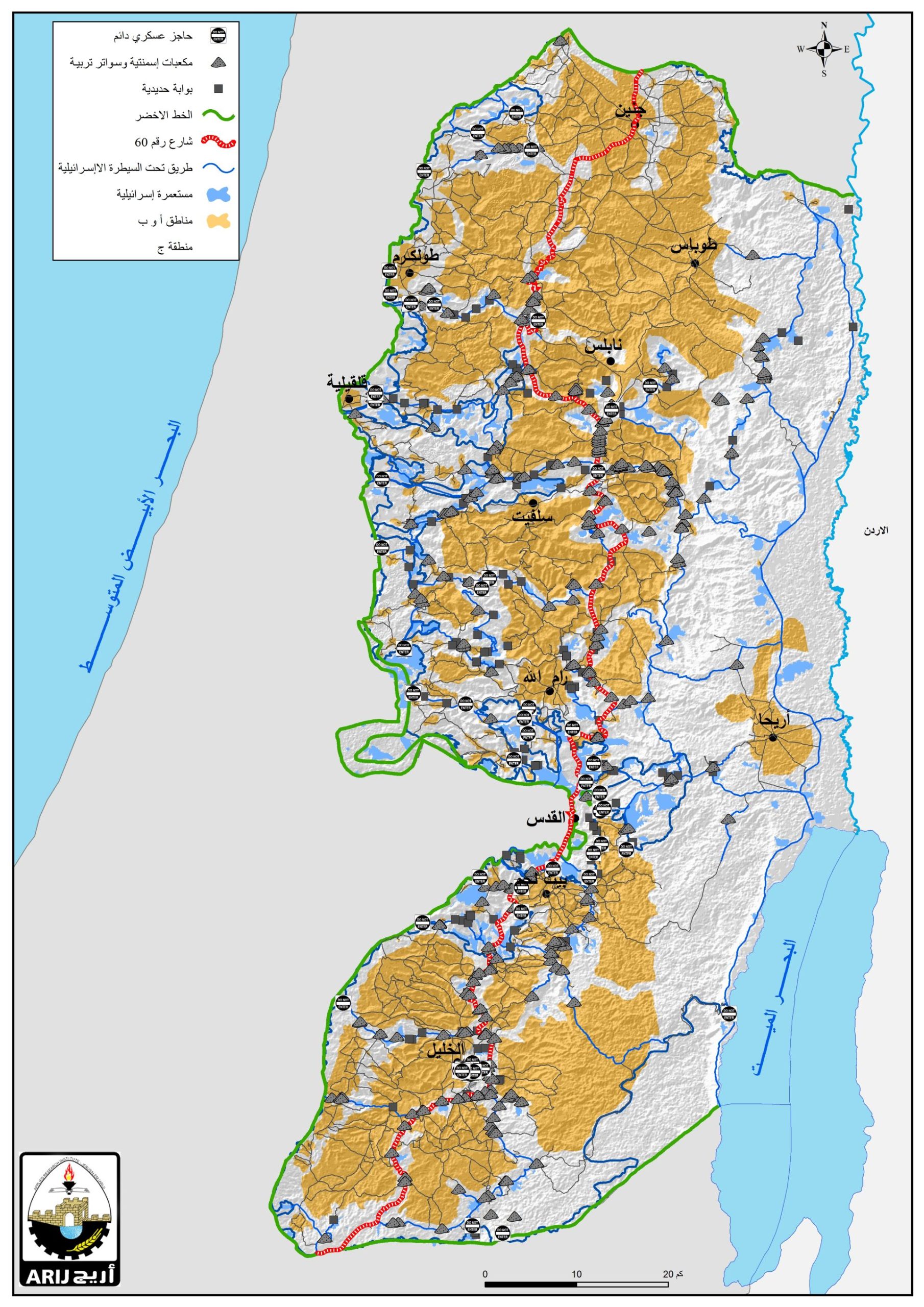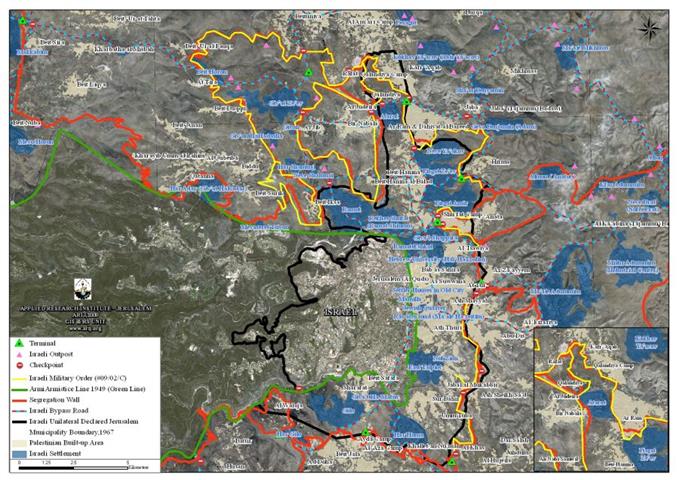Mervet, a Palestinian woman, went into labor on January 13th, 2009 while trying to convince an Israeli female soldier manning Al Za’ayyam checkpoint that she was actually giving birth to her baby, Ramez.
Rames; place of birth: Ak Za’ayyam checkpoint
The 25-year old Mervet Ahmad Saleh Al Shweiki is yet another Palestinian woman giving birth to a Palestinian baby in a car stuck at an Israeli-manned checkpoint. When she felt the pains of labor Mervet was at her in-laws in the city of Al Izzariya. They took her into a yellow-plated Israeli car and headed towards Al Hilal Hospital in Al Siwwana in Jerusalem while carrying their Blue Israeli IDs. When the car approached Al Za’ayyam checkpoint, along line of vehicles was present as each Jerusalemite car was thoroughly checked and some times searched. One of the female soldiers manning the checkpoint stopped the car carrying Mervet on the side of the road under the pretext that it was spotted by-passing cars standing in the line. The soldier did not care enough to go and see why such a move was taken by the driver of the car. While waiting at the checkpoint the labor pains became worse and worse and Mervet gave birth to Ramez inside the car. When the female soldier finally agreed to check the claims of Mervet’s escort about a presence of a pregnant woman in the car, she found that the baby was already born. Only then did she allow the car to pass through the checkpoint.
Mervet gave the following testimony to Land Research Center (LRC)’s field researcher:
I was visiting my in-laws on Monday January 12th, 2009. At 8:00 AM on Tuesday I felt the labor pains. The wife of my brother-in-law placed me in her yellow plated Israeli car and headed towards Al Za’ayyem checkpoint where we found a long queue. My driver went down to talk to the female soldier and to inform her that we have an emergency case of delivery in an effort to allow us through. Yet, the soldier did not give a hoot about our request until she was informed that I had an internal bleeding. She came to the car, searched the car and wasted even more time asking about my ID before opening the car door next to me. When she saw that I have given birth to a baby boy, she said in a cold manner:” now you can pass…”I was in great pain and became unconscious for a while. When we arrived at Al Hilal Hospital, I was administered First Aid. I wasn’t able to stand on my two feet as I have lost a lot of blood as its level became only 6. The doctors called my husband and informed him that I needed two blood units. However, the military checkpoint of Haza’atiem located in Ras Abu Sbeitan refused to allow him through. They told him to come back “tomorrow” as he might have a permission to enter Jerusalem then. He arrived only the second day. I stayed in the hospital for three days under special medical care in anticipation of any possible deterioration of my health and the baby’s.
As such, the Palestinian agony at Israeli checkpoints continues unabated. Keeping in mind that some Palestinians, such as Mr. Omar Rashid, were even killed at the checkpoints, then it would not be that strange that Palestinian women give birth at such checkpoints.
It was God’s will that Ramez and others like him who were born at checkpoints (such as Darin, Shahenda and Aisha who were all born at Shufat checkpoint) to continue to cling to life in spite of the Israeli occupation whose icon Golda Meir said once that she feels worried every time a Palestinian baby is born.
The Israeli policy at checkpoints and closures (numbering 699 in the West Bank and including 45 flying checkpoint) focuses on the humiliation of the Palestinians and the wasting of their dignity and sometimes even their lives. Such a policy is contradictory to all human norms and morals as well as all international conventions dealing with human rights.
The LRC sees that the implementation of the current closure policies adopted by the Israeli occupation against the Palestinian population in the West Bank is a gross violation of Article 13 Section 1 of the 1948 International Declaration of Human Rights. The Section declared that “each individual has the right to leave any country, including his own, and returning to his country”.
Prepared by:
The Land Research Center
LRC















